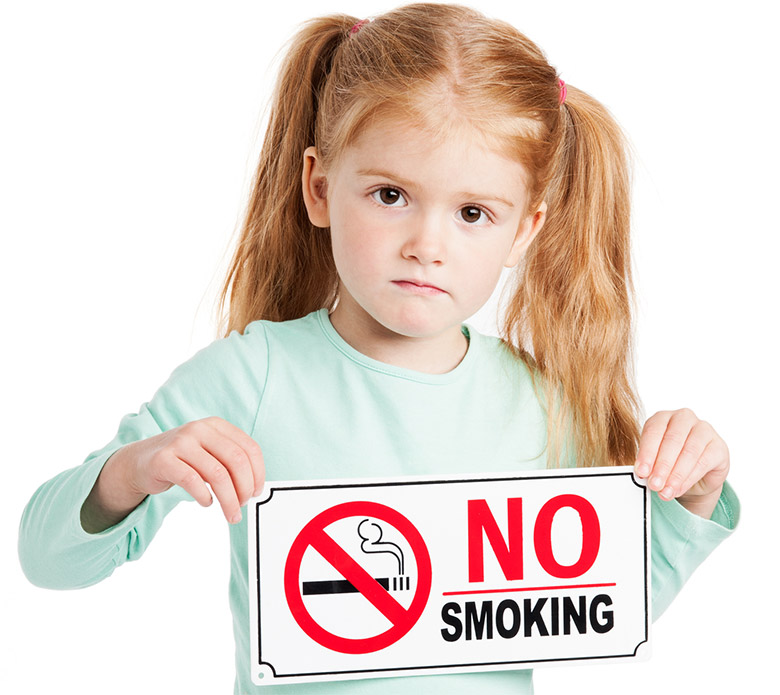It is well-known that pregnant mothers who smoke are more likely to give birth prematurely. A new study from Bristol University has found that pregnant women who are exposed to passive smoking deliver their babies earlier and with lower birth weights than unexposed women.
It is because of the effect of passive smoking on children that the government banned smoking in cars from 1 October 2015. Children are especially vulnerable to second-hand smoke (SHS) as they breathe more rapidly, inhaling more pollutants per pound of body weight (a higher relative ventilation rate) than adults. SHS exposure has been linked to an increased risk of a range of illnesses including lower respiratory tract infections, asthma, wheezing, middle ear infections, sudden unexpected death in infancy and invasive meningococcal disease. Smoking in cars is particularly hazardous as levels of second-hand smoke have been found to be dangerously high due to the enclosed space, even when the vehicle is well ventilated.
Cigarette smoke contains over 4000 chemicals (both particles and gases), including chemical irritants and almost 70 carcinogens (cancer causing substances). The only way to protect your family is to make your home and vehicle smoke free.
Read more about the effect of second hand smoke on children.
See our latest offers on quit smoking treatments.

